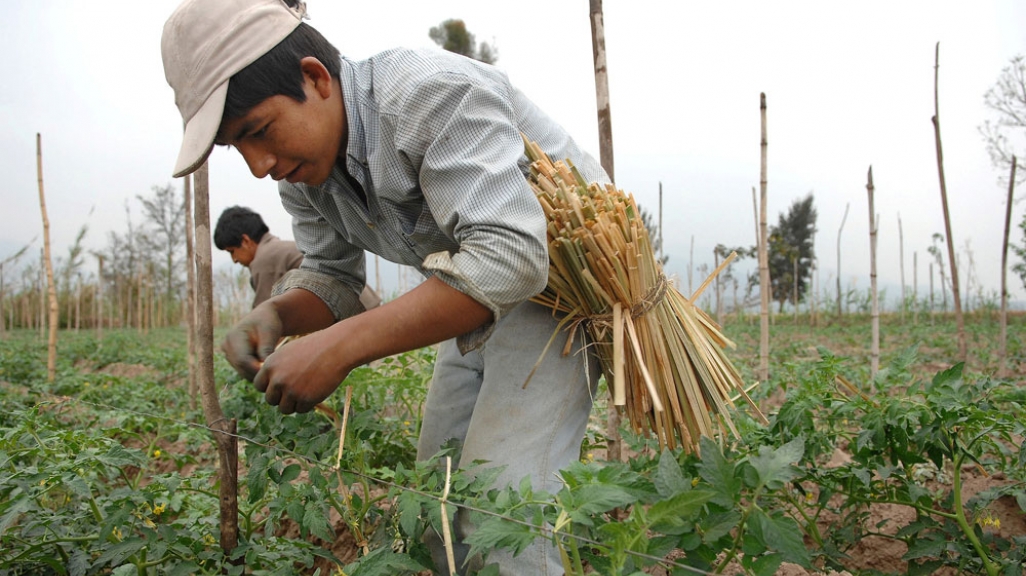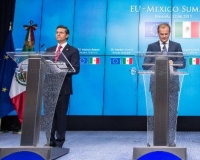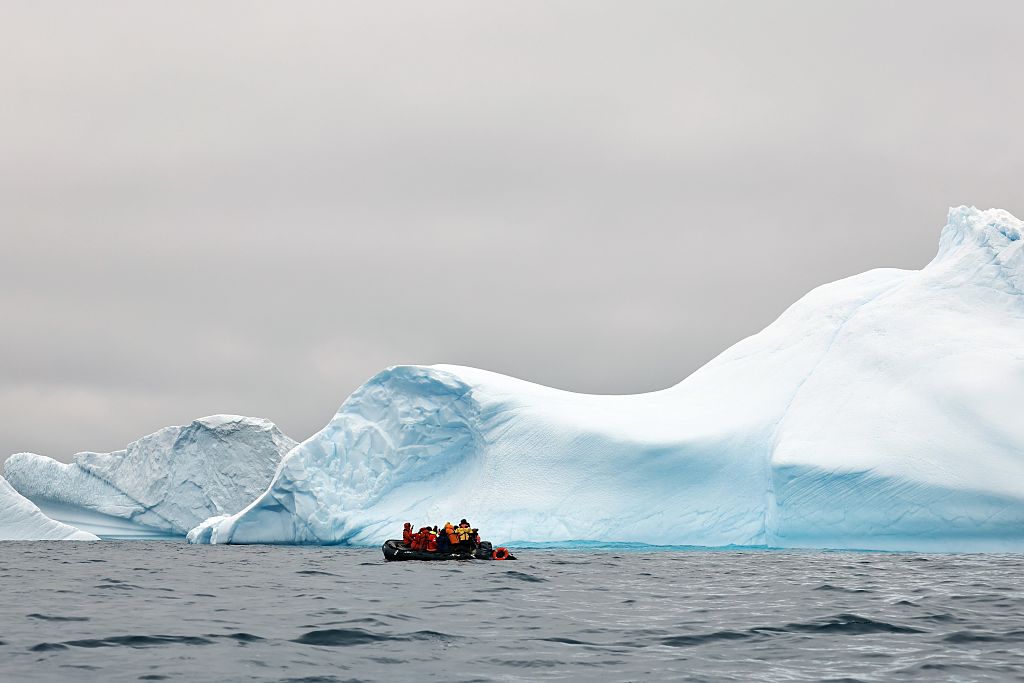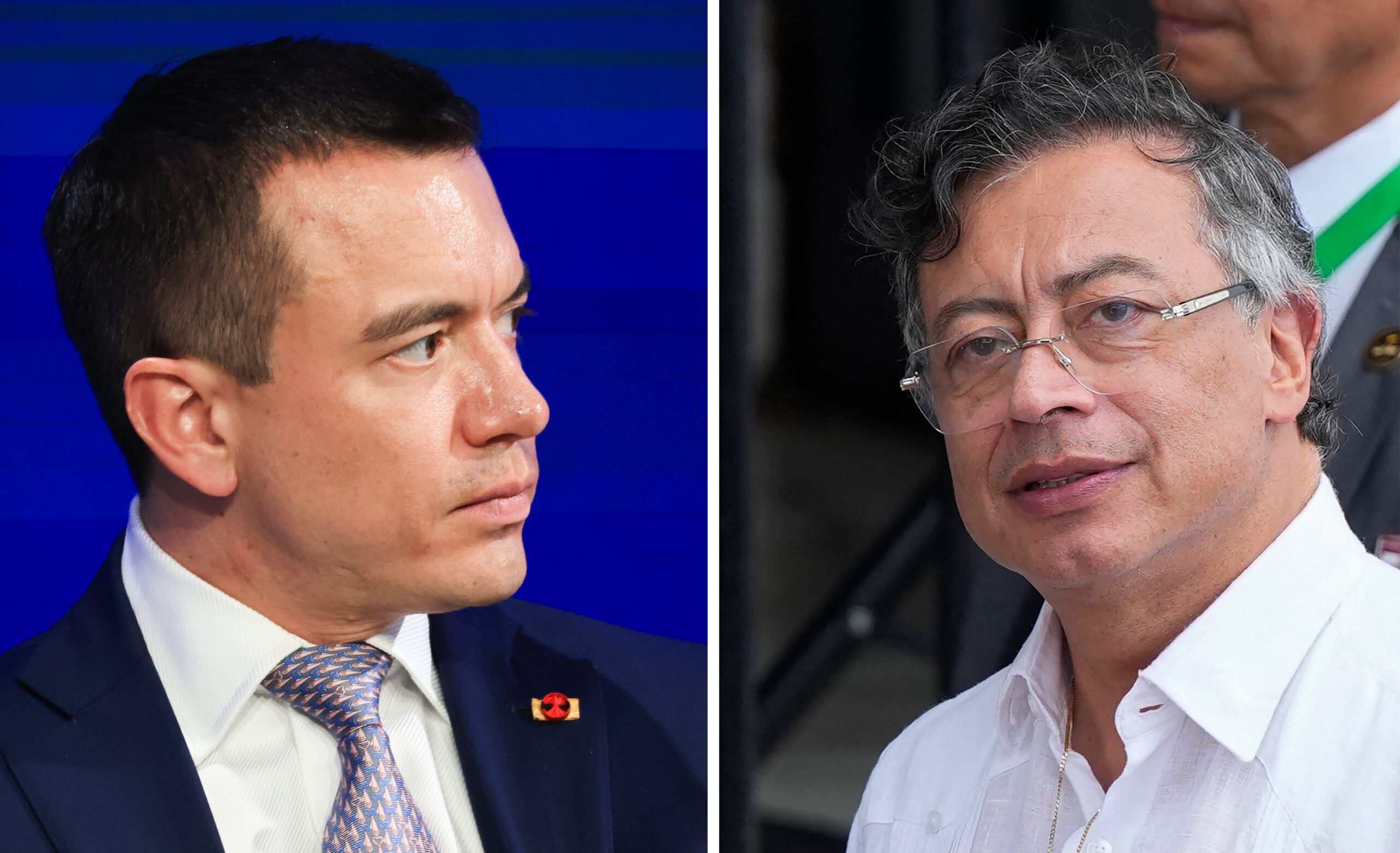Update: EU and Mercosur's Window of Opportunity to Finalize Trade Deal
Update: EU and Mercosur's Window of Opportunity to Finalize Trade Deal
Negotiators were in Buenos Aires through March 24 to advance a deal 18 years in the making.
The European Union and the Mercosur trade bloc are in the middle of a renewed a push to hammer out a trade deal 18 years in the making. Delegations from both sides met in Buenos Aires from March 20 to 24 to advance talks toward an agreement that covers both trade and political cooperation.
Both blocs have intensified negotiations as their need to diversify trading partners increases. Mercosur, whose members account for more than half of Latin American GDP, has prioritized opening up to its largest trading partner to combat sluggish economic growth and rising protectionism in North America. The EU has a renewed interest in reaching a deal with Mercosur as the prospect of finalizing the Transatlantic Trade and Investment Partnership with the United States fades. The EU and Mercosur began negotiations on an agreement in 1999. Negotiations stopped and started a couple of times in the 2000s with no significant progress.
In his first month in office, Argentine President Mauricio Macri returned the issue to center stage in his first Mercosur Summit appearance in December 2015. Previously, Brazil’s Dilma Rousseff had pushed to advance negotiations with the EU to combat her country’s economic recession, but had failed mainly due to lack of support from Macri's predecessor, Cristina Fernández de Kirchner. Negotiators exchanged initial offers in May 2016 and held talks that October.
This week’s negotiations will likely not lead to an agreement on a handful of contentious commercial issues, but instead, according to the EU’s Director for the Americas Edita Hrdá, the negotiations will focus primarily on negotiating the political part of the agreement. Initial reactions from Buenos Aires have been positive, and Argentina’s Foreign Minister Susana Malcorra assured that the teams “are making good progress.”
A deal in 2017?
Both parties are optimistic about reaching a final deal quickly, but renewed interest alone will not lead to a speedy agreement. Macri, who currently holds Mercosur’s rotating chair, stated in February that that he hopes to reach a deal by the 11th WTO Ministerial Conference in December 2017, which will also take place in Buenos Aires. Whether or not the parties ink a final deal by the end of the year will hinge largely on their ability to hammer out a compromise on tariff and quota concessions.
Even if the two sides can sign on a final agreement, it must still be approved by the blocs’ respective parliaments and the European Council, which sets the EU’s political agenda. In the case of the EU, the agreement with Mercosur is likely to be considered a “mixed agreement,” which would require ratification by all 28 member states.
Agriculture remains the most sensitive issue
Mercosur remains discontent with a lack of EU concessions on agricultural imports. The EU has pushed to make 90 percent of all trade tariff-free but is reticent to eliminate quotas on Latin American food imports. Members like France, Ireland, and Poland in particular are concerned that an influx of low-import Latin American food products like grains and meat will cut into their share of the domestic market.
European agricultural producers are becoming more vocal as they suffer from low commodity prices worldwide and by Russia’s embargo on their products. EU labor unions have also protested that Mercosur’s agricultural goods are not subject to the same health, safety, and environmental standards as that of the EU.
When news of a meat sanitation scandal broke in Brazil this month, the EU suspended imports from four tainted processing facilities. EU agricultural and livestock trade associations and unions Copa-Cogeca and Interbev denounced the scandal as proof that Mercosur does not have reliable sanitation standards. As EU Health Commissioner Vytenis Andriukaitis prepares to visit Brazil on March 27 to meet with its agriculture minister, Hrdá said the scandal would “absolutely in no way be an obstacle” to the current talks. The EU imported $485 million worth of Brazilian beef in 2016.
The EU, which exports largely industrial and service sector goods to Mercosur, has claimed in the past that Mercosur has not made concessions on government procurement, human rights, and transparency guarantees that would allow EU goods to compete fairly in manufacturing sectors and government bidding processes. Additionally, the EU wants Mercosur to phase out tariffs on manufactured goods, which currently stand at 35 percent for some goods like automobiles.
A narrow window of opportunity to reach a deal
Mercosur’s current political environment offers a unique opportunity to reach a deal. In the past, internal disputes, protectionist regimes, and the entrance of Venezuela into the bloc frustrated attempts to negotiate from a common position. Now, new administrations in Argentina and Brazil, as well as Venezuela’s suspension in December, have generated conditions more amenable to the negotiations. In an effort to ensure cooperation, foreign ministers from Argentina, Brazil, Paraguay, and Uruguay met prior to the negotiations to close ranks and agree on a common strategy.
But time is of the essence. Political instability on both sides of the Atlantic could still jeopardize the conclusion of a deal.
Mercosur’s leadership is not guaranteed to remain in power in the short term. Neither Macri, who faces congressional elections in October that will ratify or reject his agenda, nor Brazil’s President Michel Temer, who faces ongoing corruption scandals, will necessarily maintain their current mandates. Additionally, Venezuela’s growing instability and spillover risks to neighboring countries could limit Mercosur’s bargaining power.
EU internal divisions over trade policy could also present a significant impediment to reach a deal. The rise of populist “Euroskeptic” candidates like Marine Le Pen in France, the UK’s vote to exit the EU, and the near rejection of the EU-Canada Free Trade Agreement exemplify the difficult road ahead. Additionally, the EU will host critical federal elections in France and Germany this year that could substantially alter the EU’s trade policy.










